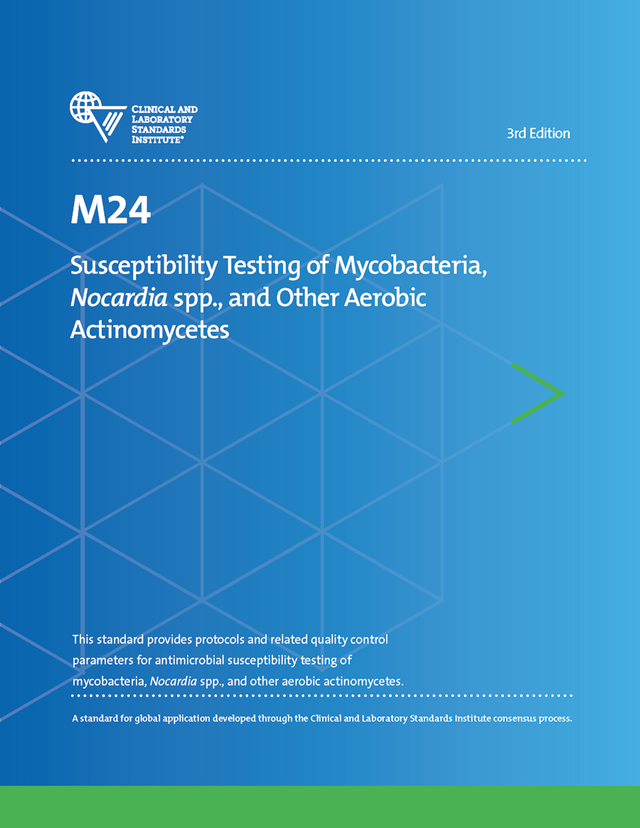Testing Methods for Mycobacterium Tuberculosis Complex (MTBC)
2/17/2020

M24 is an important foundation guideline that supports CLSI’s library of antimicrobial and antifungal susceptibility testing documents. Various antimicrobial susceptibility testing (AST) procedures for mycobacterium tuberculosis complex (MTBC) are available, including the agar proportion (AP) method, commercial broth systems with shorter incubation times, broth microdilution method, and molecular detection of drug resistance. For MTBC AST, culture-based methods using solid or broth media and molecular methods that detect drug resistance mutations are both available. These methods include:
- Culture-based method for specimens or isolates using a solid medium (eg, the agar proportion (AP) susceptibility test).
- Rapid broth-based culture methods for specimens or isolates.
- Molecular detection of drug resistance using commercially available nucleic acid amplification systems combined with DNA probes to detect the presence or absence of wild-type sequences from specimens.
- Molecular detection of drug resistance using DNA sequencing on specimens or isolates.
Combining culture-based and molecular methods in a testing algorithm may not be cost effective for most laboratories, but mycobacteriology laboratories should be aware of all methods and their strengths and limitations. Incorporating molecular testing into the laboratory or sending isolates to a referral laboratory should be considered when resources permit, particularly when the patient’s clinical history suggests an increased probability of drug resistance.
Learn more about testing methods for mycobacterium tuberculosis complex with M24.
